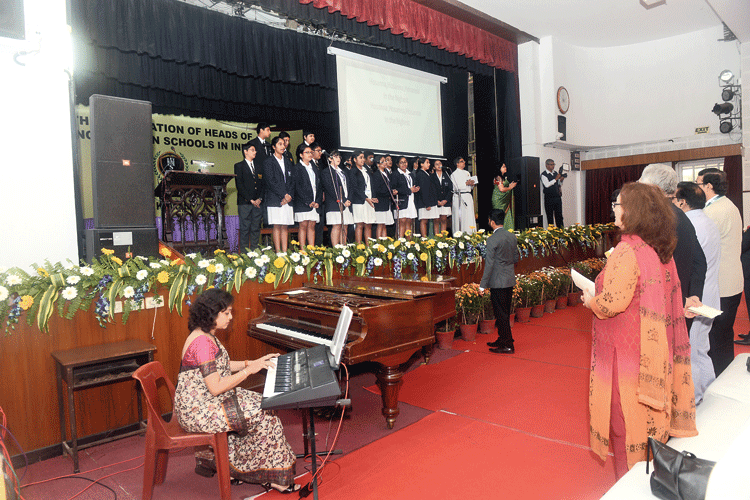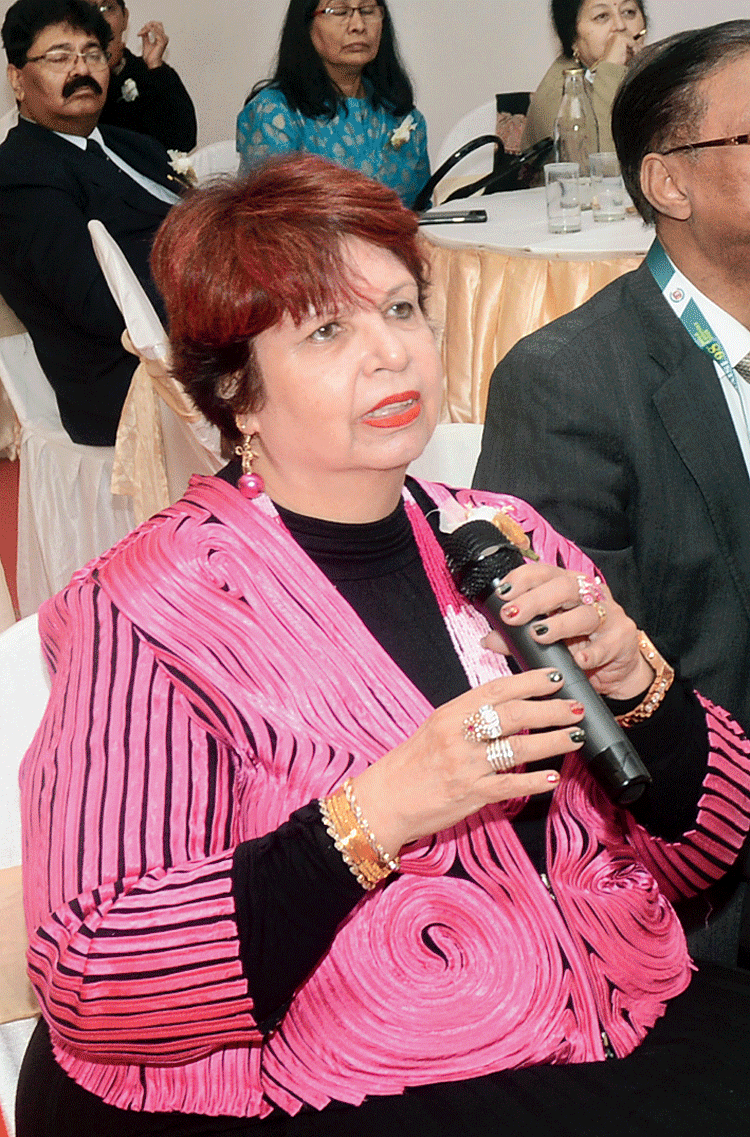
Gillian R. Hart
‘Calculated move’ to silence community'
Heads of Anglo-Indian schools speak out
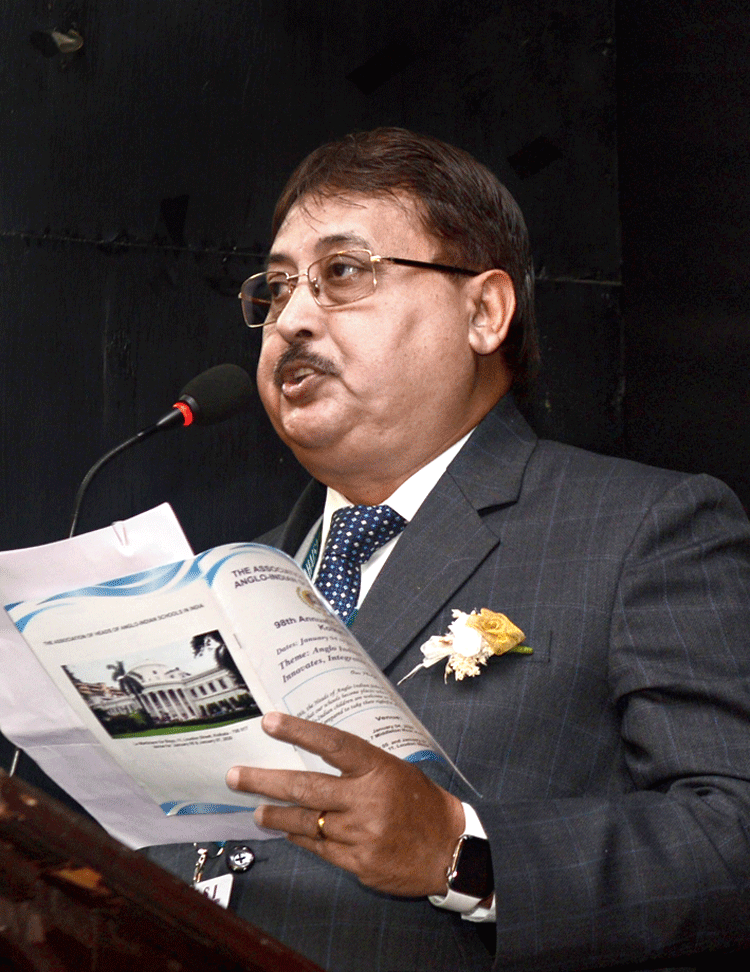
Terence Ireland
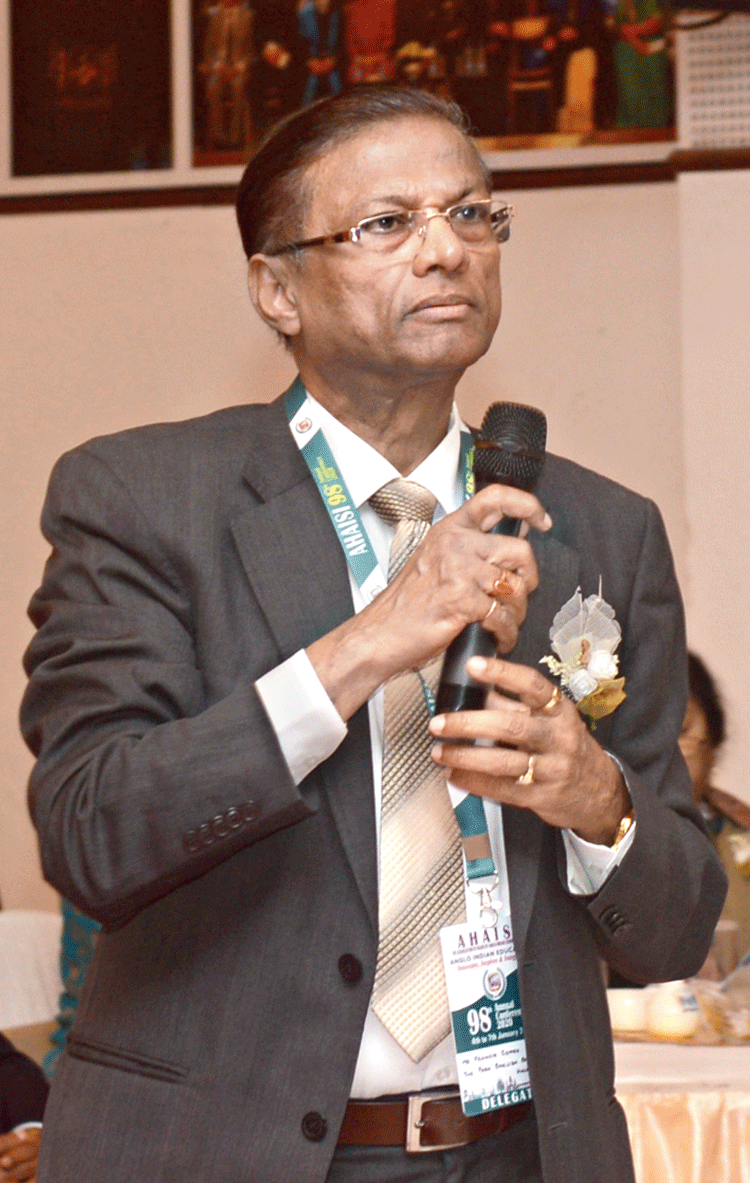
Francis Gomes
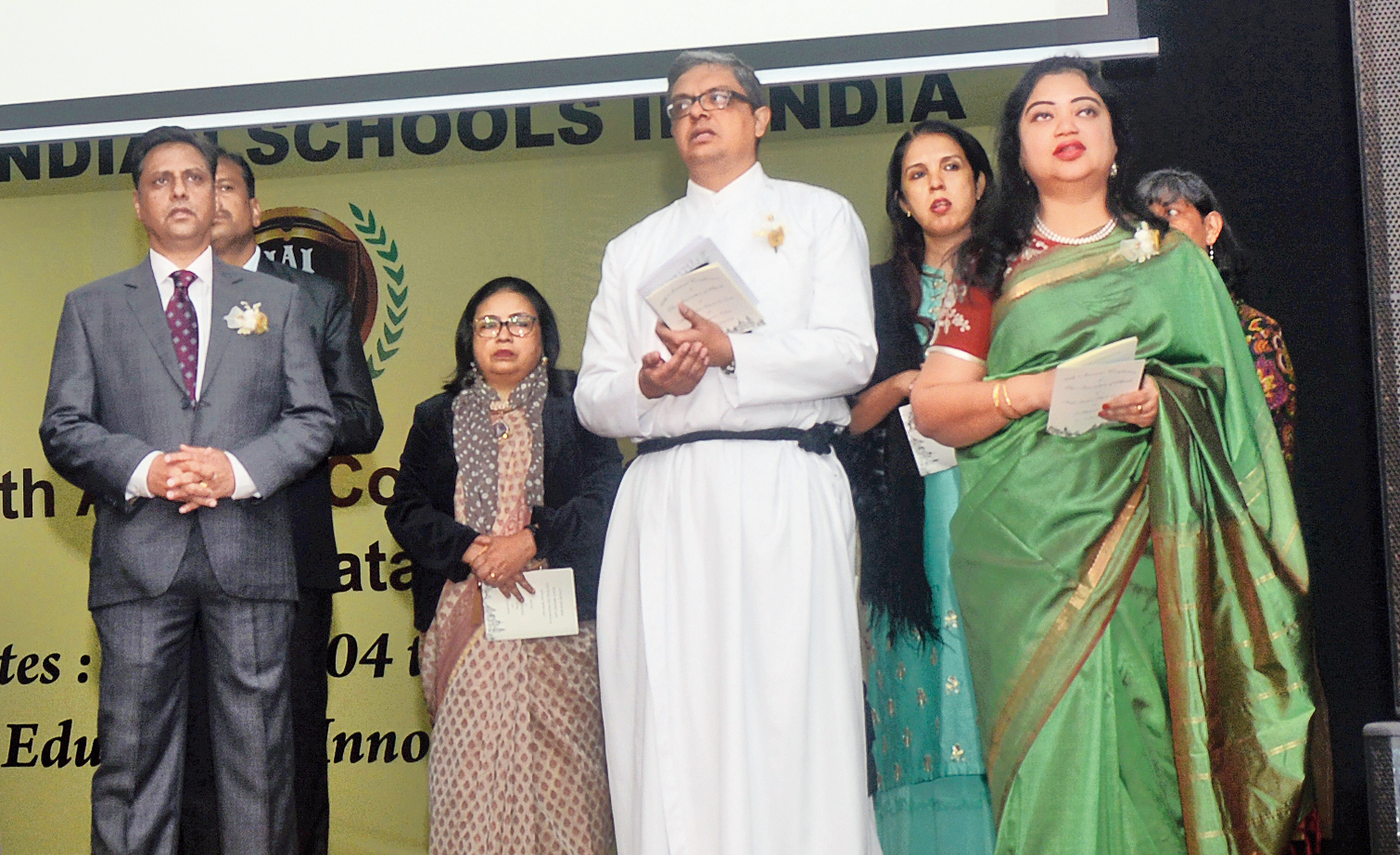
John Rafi (extreme left), the principal of La Martiniere for Boys, Sunil M. Caleb (in white), the principal of Bishop’s College, and Rupkatha Sarkar (right), the principal of La Martiniere for Girls, at the conference Picture by Bishwarup Dutta
The reservation for the Anglo-Indian community in legislatures has been abolished “to turn India into a majoritarian state where all minorities would be targeted”, the principal of a city school said.
Francis Gomes, of Park English School, made the statement after a discussion on “legal hassles facing Anglo-Indian institutions”, held at La Martiniere for Boys on the second day of the annual conference of the heads of Anglo-Indian schools on Sunday.
Soon after Chama Mukherjee, an advocate of Calcutta High Court, started the panel discussion, the principals of several schools flagged their concern about the abolition of the reservation for the Anglo-Indian community in legislatures and wondered whether the Centre was planning to curb the rights of the institutions run by Anglo-Indians through the draft National Education Policy.
Gomes said the abolition of reservation had sparked the fear that the Centre was trying to turn India into a majoritarian state, where all minority communities would be attacked one after another.
“The larger fear that emanates from the abolition of reservation for the Anglo-Indian community and enforcement of laws such as the Citizenship (Amendment) Act and the National Register of Citizens is that they are going to target all minority communities,” Gomes told The Telegraph.
“They started with the Muslims through the Citizenship (Amendment) Act and the National Register of Citizens. They are targeting the second group, the Anglo-Indians. It will extend to all Christians. That is the fear. There is a tendency to turn India into a majoritarian state. That is why we are all protesting against the CAA and the NRC.”
During the panel discussion, Father Rodney Borneo, the principal of Loyola High School, read out from the “statement of object and reasons” of the Constitution (One Hundred and Twenty-sixth Amendment) Bill: “Although the Scheduled Castes and the Scheduled Tribes have made considerable progress in the last 70 years, the reasons which weighed with the Constituent Assembly in making provisions with regard to the aforesaid reservation of seats have not yet ceased to exist. Therefore, with a view to retaining the inclusive character as envisioned by the founding fathers of the Constitution, it is proposed to continue the reservation of seats for the Scheduled Castes and the Scheduled Tribes (in legislatures) for another ten years i.e. up to 25th January 2030”.
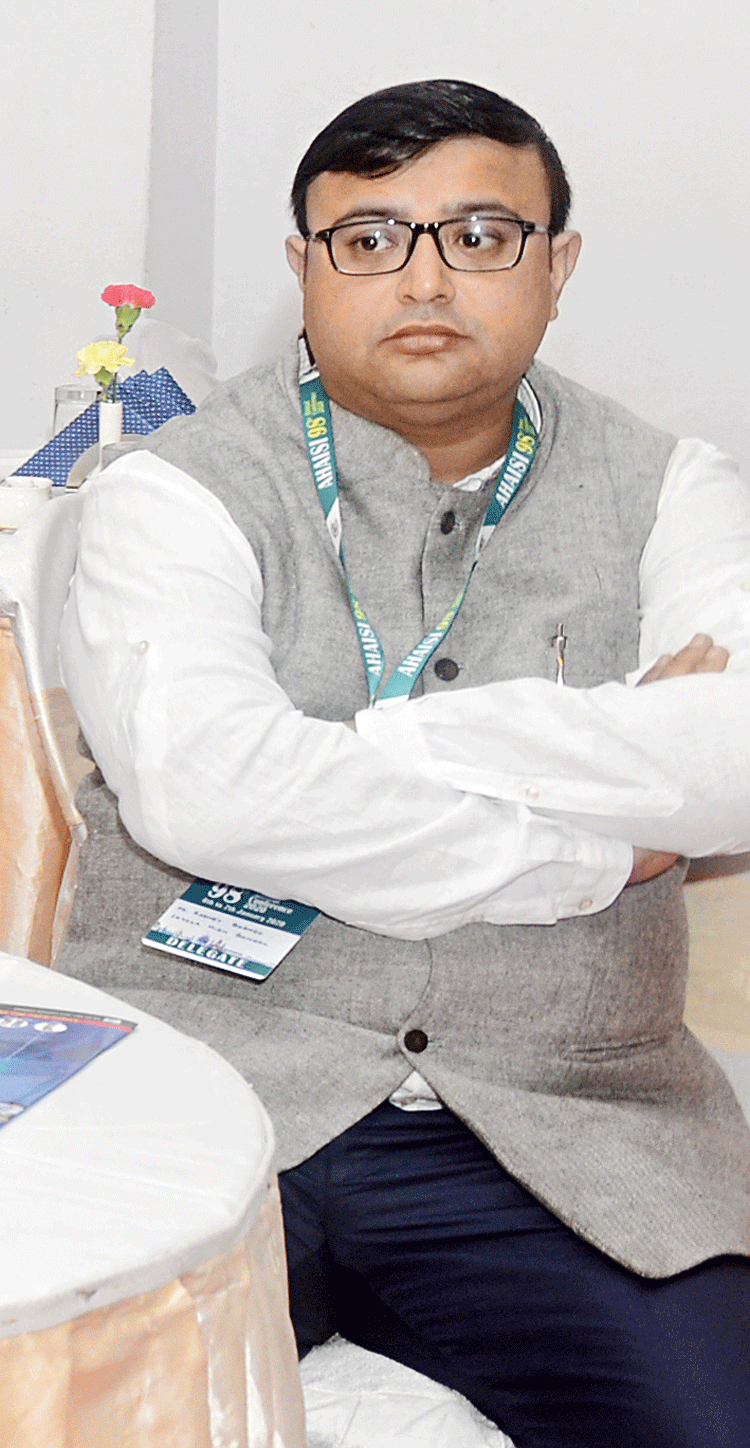
Father Rodney Borneo
Father Rodney Borneo, principal, Loyola High School
Our children by and large are untouched by Islamophobia. But there are lots of people, who are surprisingly educated, who suffer from Islamophobia. To me, it seems they are only literate, not educated. Had they been educated, they would not have suffered from this.
Gillian R. Hart, principal, Welland Goldsmith School
I wonder what would happen if the Centre introduces syllabus through the National Education Policy. Then the Anglo-Indian schools will have to follow this by sacrificing a certain amount of autonomy and freedom they enjoy. Suddenly, they will say “take this book, such and such chapter”. We do not know what is in that chapter? It may be something which is derogatory or something which is not right. We are teaching children that they should be inclusive, they have to respect all religions, communities. Say, if something comes in the way of that. It will be imposed on us.
Principal of a south Calcutta school
Why should there be phobia of any kind? It’s a negative emotion. Where things are wrong, that is wrong. That does not mean you discriminate against the entire community. Jesus said discrimination is not acceptable. He himself led the way.
Francis Gomes, principal, Park English School
In the proposed National Education Policy, there is a concept called community school complex. Lot of our schools have got very big infrastructure. So, they (Centre) may say that under the concept, this municipal school in your vicinity does not have infrastructure. Let them come to our schools. Their teachers can come to our schools and our teachers will go to their schools. How will they teach at our schools? We have our own ethos. We will be losing our control.
Terence Ireland, principal, St James School
They have abolished the representation of the Anglo-Indian community in legislatures so that there is no representative from the community who could speak on behalf of the community…. They (the Centre) are working in a very organised manner. It’s a calculated move. They have not suddenly thought of this.
He said that “by omitting any reference to the Anglo-Indian community,” the Centre has decided to deny the community any representation. The bill has been passed by both houses of Parliament.
“The Anglo-Indian community can challenge the amendment in court. The Centre just overlooked the nomination of the community in legislatures without any valid ground,” said Mukherjee.
Several principals said during the discussion that the Centre, through the draft National Education Policy, was seeking to curb the rights of the Anglo-Indian community by bringing all schools across the country under one board.
While speaking to this newspaper, Gomes said 90 per cent of schools run by the Anglo-Indian community were affiliated to the Council for the Indian School Certificate Examinations.
“The schools want to remain affiliated to the council because it was created by the Anglo-Indian community. The council is student-friendly and is among the fastest growing (of all school affiliating bodies).... The problem with this government is there is too much centralisation and control. So, we fear our rights will be infringed upon,” Gomes said.
The reservation for the Anglo-Indian community in legislatures is being “rather maliciously, even fraudulently” abolished, St Xavier’s University vice-chancellor Felix Raj had told the annual conference of the heads of Anglo-Indian schools in Calcutta on Saturday.

